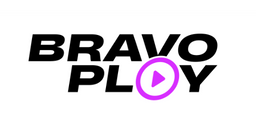Overcoming Problematic Gaming Behaviour
Gambling is leisure for many people, but for some it becomes harmful. Problem gambling can strain finances, affect health, and damage relationships. Recovery is possible. This guide explains what gambling addiction is, how to recognise early signs, and the practical steps and supports that help people regain control.
What is gambling addiction?
Gambling addiction (also called gambling disorder) is continued gambling despite negative consequences at work, in relationships, or to personal health. Urges can feel strong, thoughts about betting can be frequent, and stopping can be difficult even after losses.
Why it develops
There is rarely a single cause. Common contributors include stress, low mood or anxiety, easy online access, and beliefs such as “I can win it back.” These factors interact with the brain’s reward systems, which can make urges and loss-chasing hard to resist.
When gambling becomes a problem
Harm is not defined only by how often you play or how much you stake. It becomes a problem when gambling starts to disrupt daily life, creates money pressure, or pushes you into secrecy or risk-taking. People often notice growing preoccupation with betting, needing to wager more for the same “rush,” failed attempts to cut down, irritability when trying to stop, chasing losses, hiding the extent of play, and risking work or relationships.
Warning signs to watch
Work and study
Missed shifts, lower performance, difficulty concentrating.
Relationships
Cancelling plans, withdrawing from family and friends, arguments about money or time online.
Mood and health
Restless sleep, irritability, anxiety, low mood—especially around losses or urges.
Money
Spending beyond your means, borrowing to gamble, bills or rent falling behind.
Thoughts and behaviour
“Getting even” plans after losses, secrecy about accounts, hiding devices or bank statements.
Quick self-check
Short screening tools (used by public health services) can help you gauge risk and decide on next steps. They do not diagnose but can guide a conversation with a professional. If the score suggests risk, move to the steps below.
First steps if you’re at risk
If you feel in immediate danger or at risk of harming yourself, contact local emergency or crisis services now.
A partner, friend, or counsellor can help you plan next steps and provide accountability.
Uninstall gambling apps, delete bookmarks, and add website blocks on your phone and laptop. These tools are not perfect but add helpful friction.
Use the self-exclusion tools provided by online sites and land-based venues, and set reminders to renew them before they lapse.
Set bank limits and alerts, avoid new credit, and ask a trusted person to hold cards if needed.
Treatments and supports that help
Cognitive behavioural therapy (CBT). Learn to spot triggers, challenge gambling thoughts, and build replacement routines.
Motivational support. Strengthen reasons for change and set small, achievable targets.
Family involvement. Including partners or relatives can reduce secrecy and help rebuild trust.
Peer groups. Meetings for people with gambling problems—and separate groups for families—offer shared strategies and encouragement.
Medication (case by case). Some people are treated for related conditions such as anxiety or depression. A clinician advises on this.
Money and access controls
Concrete actions reduce harm and support recovery. Prioritise the steps that fit your situation.
| Action | How to put it in place | What to expect |
|---|---|---|
| Spending limits | Set low daily/weekly caps in banking apps; turn on alerts | Earlier warnings and less impulsive spend |
| Blocking tools | Install reputable site/app blockers on phone, laptop, and router | Added friction at trigger moments |
| Self-exclusion | Enroll with online sites and local venues; diarise renewals | Access prevented for set periods |
| Cash control | Ask a trusted person to hold credit cards; keep only small balances | Fewer high-risk funds available |
| Debt triage | List debts; contact creditors; seek non-profit advice; prioritise rent, food, utilities | A workable plan and less pressure |
Relapse prevention plan
Slips can happen. A written, one-page plan helps you respond quickly and return to your goals.
- Know your triggers. List the top three (e.g., payday, arguments, boredom) and one safer action for each.
- Use urge tactics. Delay (set a 20-minute timer), distract (switch tasks), decide (review your reasons for change).
- Name your supports. One person you can call and one professional or peer contact.
- Set money rules. No new credit; no late-night withdrawals; follow a written budget.
- Review weekly. Keep what works; adjust what doesn’t.
If you support someone
Learn about gambling harms and agree clear money boundaries. Encourage professional help and offer practical support—attending appointments, helping with calls, or holding cards—within limits you can keep. Avoid covering debts without a plan, as this can unintentionally enable further gambling.
Higher levels of care
If outpatient steps are not enough—urges stay severe, safety is a concern, or other health issues are present—ask about intensive options. Day programmes and inpatient stays provide structure, distance from triggers, and time to build routines before returning home.
Where to get help
Look for local crisis lines, non-profit counselling for gambling, peer support groups (for gamblers and families), and independent debt advice. Regulated gambling sites usually list national services on their responsible-play pages.
Key takeaway
Recovery is possible. Start with one step—tell someone, set a barrier, or book a support call—then keep building a simple plan you can follow on difficult days.









